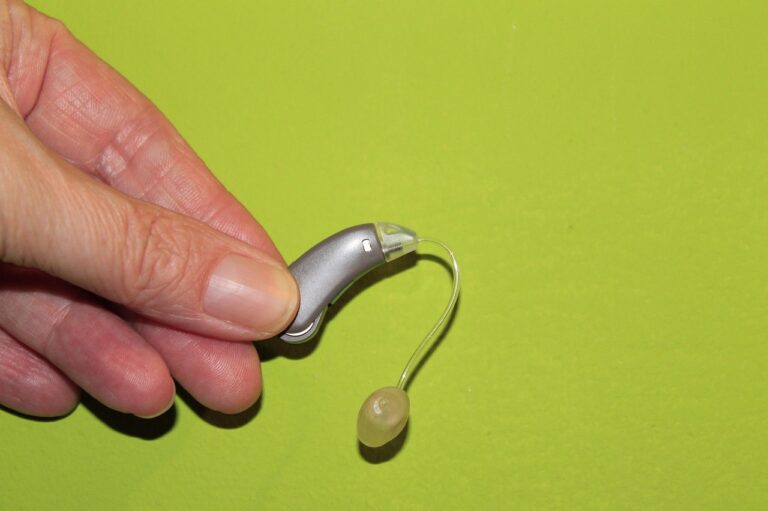Why are my ears ringing?
Understanding the Connection Between Tinnitus and Persistent Ringing Sounds
If you’ve ever heard a ringing sound without any external noise, you’re likely experiencing tinnitus. Tinnitus is an unfortunate condition where individuals can hear sounds – which are often described as ringing, buzzing, whooshing – but in reality there is nothing around them producing the sound. It is quite literally in your head. For millions of people worldwide, tinnitus can range from barely noticeable to a disruptive daily challenge.


What is Tinnitus?
As mentioned above, tinnitus is any noise that you can hear, either in one or both ears, when there is no external sound present. These phantom sounds can vary in their nature, and sometimes rather than just a sound, it can be a feeling too. For example, some people can report that they can feel a heartbeat in their ear, while others say that their ear is “vibrating” when they talk. Many people describe tinnitus as a sound that ebbs and flows, similar to the rhythmic nature of waves. Others can hear it as a constant, steady noise in the background.
It is important to note that everyone experiences tinnitus differently – there is no right or wrong sound. However, it is important to recognise when to speak to a professional about it.
Why Do I get Tinnitus?
The reason tinnitus sometimes sounds like waves, has to do with how the brain processes auditory signals. There are tiny, minuscule hairs on the inner ear, and once those get damaged—often due to loud noise, aging, or other health conditions—they can send irregular signals to the brain. In response, the brain interprets these signals, and in result we get that annoying little noise that follows us everywhere.
In simpler terms, imagine your brain as a child eagerly awaiting Christmas morning. It’s expecting sound but receives none, so it “fills in the gaps” by creating its own noise—a ringing or buzzing that never seems to go away.
Tinnitus is most noticeable in the evenings, after a long day when the house is quiet and very few external noises are present, or even when we get to bed and our bodies finally relax.
Common Causes of Tinnitus There can be numerous causes of tinnitus, however, some of the more common ones include:

How Tinnitus Impacts Your Life
For some, tinnitus is a minor inconvenience. They go about their day as normal, and barely even notice it. Most become aware of it once you point it out to them. For others, it can severely impact daily life by making it difficult to concentrate, sleep, or enjoy quiet moments. It’s kind of the same experience as a loose mosquito in your bedroom. It’s 2AM and you absolutely cannot find it. At this point, you want to wake up your whole family to help you find the annoying prick. Should your tinnitus keep you up at night – speak to your doctor. They can refer you to investigate it!
While there is no definitive cure for tinnitus, there are ways to manage the condition and reduce its effects.
How to Prevent Tinnitus
Before you even think about how treat your tinnitus, I want you to think long and hard about how you can prevent it first. To reduce your chances of developing tinnitus, follow these tips:
Protect Your Ears
Always use ear protection in noisy environments. There are plugs everywhere now, both affordable and custom made ones!
Limit Loud Music
Keep the volume at safe levels, especially when using headphones. About 2/3 up the volume bar is enough.
Take Care of Your Health
Regular check-ups can prevent or manage conditions that worsen tinnitus. See your doctor if it starts suddenly, affects only one ear, or is getting worse. Early detection can make a big difference in protecting your hearing.
Treatment Options
Although tinnitus can’t always be cured, there are treatment options to help manage it:
Sound Therapy
White noise machines, nature sounds, or calming music can mask the ringing or buzzing sounds, making them less noticeable. Not only do these help “mask” the noise, but in most situations, they help you relax your mind as it’s redirected from potential overthinking about your day. Relaxing or distracting you mind helps reduce the tinnitus.
With technology constantly evolving, there are now countless apps offering a wide variety of sound-therapy tools and frequency-relief tracks to help you manage tinnitus.


Hearing Aids
Amplifying external sound can reduce the perception of internal noises like tinnitus. Yes hearing aids can help, only if you have a hearing loss. If you don’t have a hearing loss, read other suggestions.
And no, they don’t always help. Unfortunately, it is very subjective. Your audiologist will walk you through the process of adaptation, and yes it is a process, not a quick fix. That being said, there are many cases where the hearing aids have immediately helped the patient, without any additional programming. People are simply different. Their ears are different and their brains are different. You won’t know until you try it.
Relaxation Techniques
Stress management can significantly reduce tinnitus severity (more on this in my next post). This is my absolute favourite suggestion, please make sure to read how stress influences your tinnitus. Even if your tinnitus is caused by something else, stress can make it worse.


Cognitive Behavioural Therapy (CBT)
CBT helps change how you react to tinnitus, reducing its emotional impact. You can work with a mental health professional on this, or if you cannot afford it I have included some links below to videos that might be helpful.
Managing your tinnitus can be a lengthy process, but having a positive mindset for one or multiple suggestions above can really impact your treatment. Every person on this planet is different, and deals differently when approaching new things. Don’t be afraid to seek help or chat about it with your loved ones. Feel free to ask any questions below, and good luck!
Want to Learn More?
Tinnitus is often exacerbated by stress, which is becoming a more significant factor in today’s fast-paced world. If you’d like to dive deeper into how stress influences tinnitus and what you can do about it, check out our next post: [How Stress Influences Your Tinnitus].
